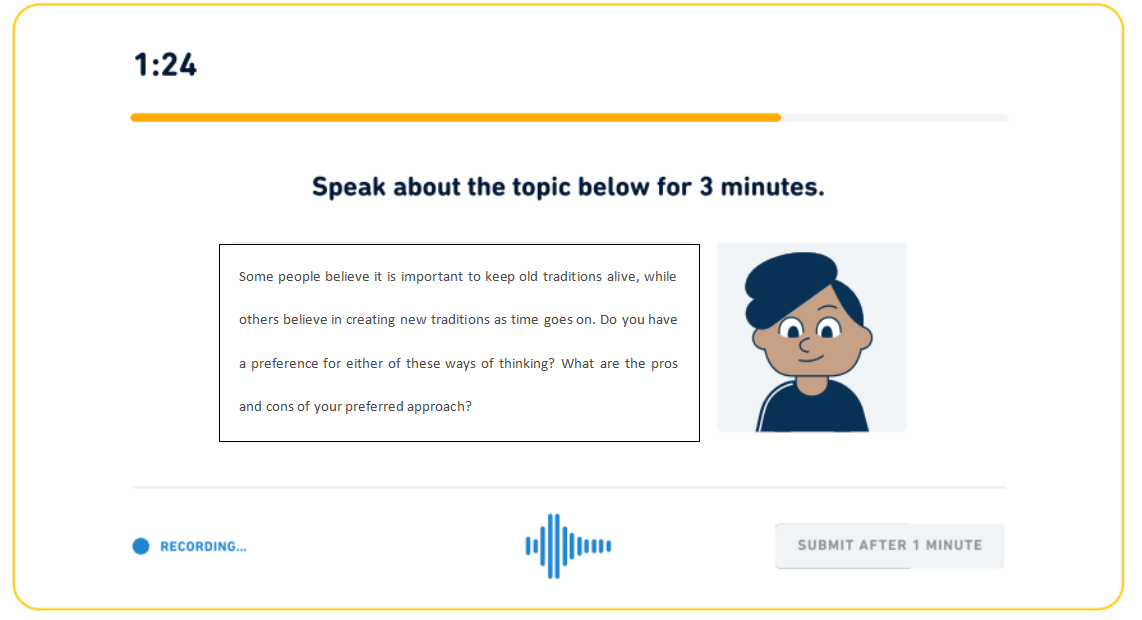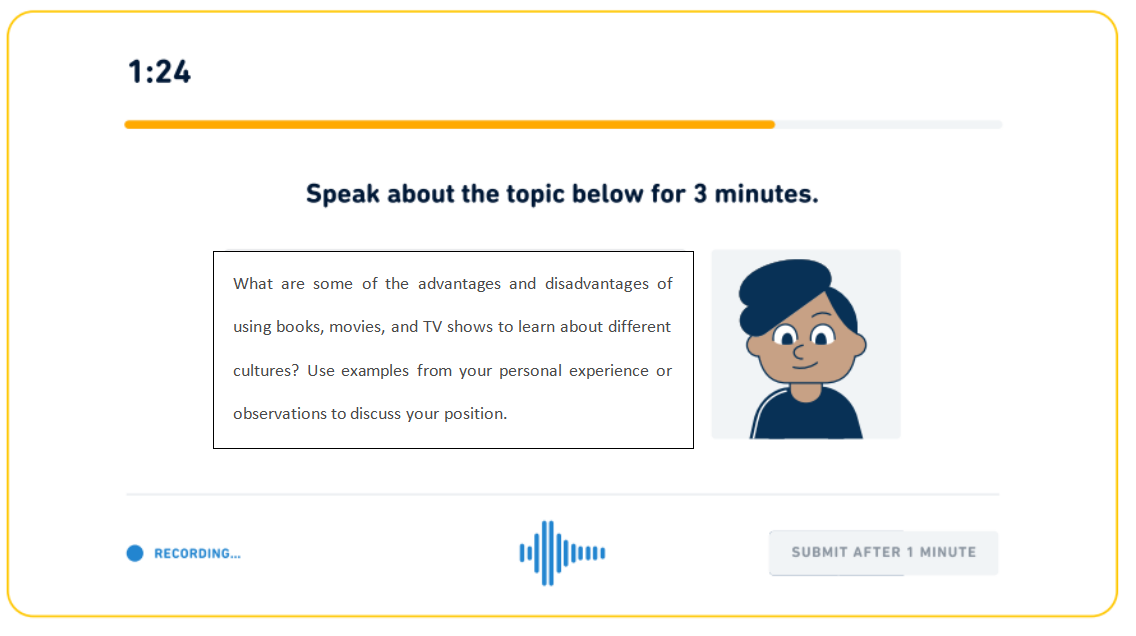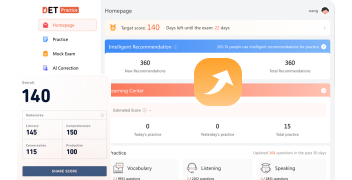DET High-Difficulty Question Answers: 'Speaking Sample' (2024.10.24)
The 'Speaking Sample' section of the Duolingo English Test (DET) requires candidates to clearly express their opinions on a given topic within three minutes. This section assesses fluency, accuracy, pronunciation, vocabulary, and the coherence of ideas. Here, we’ll share effective strategies and sample answers to help you excel in this part of the test.

High-Scoring Strategies for the DET Speaking Sample
1. Grasp the Topic and Plan Quickly
Before speaking, take a moment to fully understand the topic and outline a brief structure. A “point, support, conclude” format works well: begin with your main idea, follow with supporting details or examples, and end with a brief summary. For narrative responses, use chronological order to maintain a logical and easy-to-follow response.
2. Maintain Clear Structure and Logical Flow
A well-organized structure and logical flow help your listener follow your answer. For example, when asked to “describe an interesting travel experience,” organize your response by describing the place, activities, and impressions in sequence. Avoid jumping between points or repeating ideas, as a structured answer is more engaging and easier to follow.
3. Use Diverse Vocabulary and Minimize Repetition
Within the time allowed, try to show a range of vocabulary, particularly by using varied verbs, adjectives, and descriptive words. Avoid repeating basic terms like “good” or “interesting” and opt for synonyms or more specific terms like “fascinating” or “memorable” to add depth to your response.
4. Ensure Fluency and Natural Pace
Keep a moderate speaking speed, avoiding overly slow speech or rushing due to nerves. A natural pace shows fluency and small errors are not an issue if they don’t interrupt the flow of your response.
5. Practice Pronunciation and Intonation
Clear pronunciation and natural intonation are essential for a high score. Regularly listening to native speakers and mimicking their pronunciation and intonation, especially for keywords and sentence endings, can help. Adjusting your tone to emphasize your points can add confidence to your response and make it more engaging.
High-Difficulty Sample Questions and Responses
The 'Speaking Sample' is an objective-type question. When tackling this question type, candidates should adopt a flexible approach. Below, you'll find two advanced answers. If you're looking for more practice, feel free to check out the video below.
Sample question 1:

Sample answer:
That's an interesting question, and it really got me thinking. I believe there’s significant value in both preserving old traditions and creating new ones.
On one hand, keeping old traditions alive helps us connect with our roots and provides a deep sense of cultural identity. Celebrating holidays like Thanksgiving and Christmas not only brings families together but also fosters a collective sense of unity. Additionally, preserving these traditions allows us to learn from the wisdom and experiences of our ancestors, passing down valuable knowledge through generations.
On the other hand, creating new traditions is essential for adapting to our ever-evolving world. New traditions embrace change and offer exciting opportunities for self-expression and creativity, reflecting our modern values and circumstances.
In conclusion, I believe it’s crucial to strike a balance between preserving old traditions and creating new ones. This approach honors our heritage while allowing us to embrace change and progress in our lives.
Sample question 2:

Sample answer:
There are both positives and negatives to learning about different cultures through books, movies, and TV shows.
On one hand, these media can be a fantastic window into diverse worlds, offering snapshots of cultural practices and beliefs we might not otherwise encounter. For example, reading "Memoirs of a Geisha" provided an enthralling view of Geisha culture in Japan, almost like stepping into another universe.
However, these portrayals can also perpetuate stereotypes and offer skewed or overly romanticized views. Many Hollywood films depict foreign cultures through a narrow lens filled with clichés. You can’t truly understand a culture just by watching a movie.
Additionally, narratives often dominate from a Western perspective, which may not accurately reflect the experiences of people from different cultures.
In essence, while media can spark our interest in other cultures, it's vital to approach them critically and seek out diverse sources for a more holistic understanding.
Further Reading:
l 10 Advanced Vocabulary for “Writing Sample” in the Duolingo English Test - Personal Experience
(An article about advanced vocabulary for Writing Samples.)
l DET 5 High-Scoring Sample Answers: 'Writing Sample'
(An article about High-Scoring Sample Answers for Writing Samples.)





